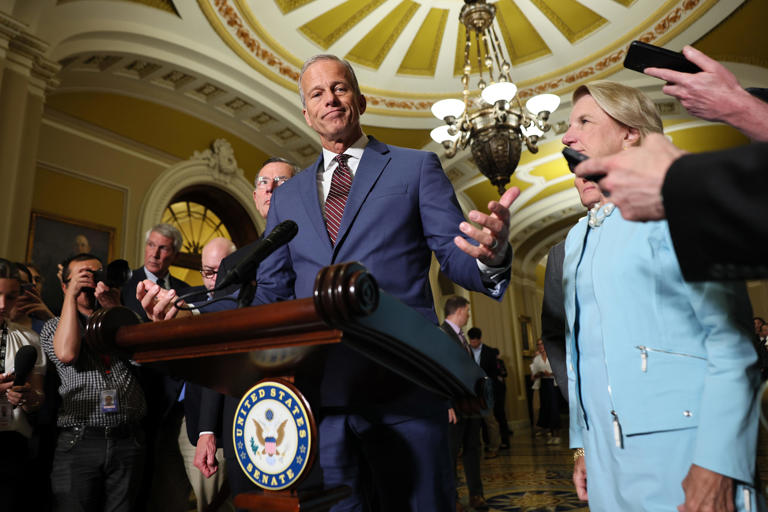Washington, D.C. —
Congressional
Republicans
are a step closer to slashing $9 billion in federal spending, with the Senate narrowly approving a controversial package of cuts early Wednesday morning after more than 12 hours of debate and back-to-back votes.
The measure, formally requested by President Donald Trump in early June, targets funding for public broadcasting, global health programs, and foreign aid. If passed by the House and signed by Trump, it would reduce allocations to the Corporation for Public Broadcasting—which supports NPR and PBS—as well as to international organizations like the World Health Organization and the U.S. Agency for International Development (USAID).
Two moderate Republicans, Sens. Lisa
Murkowski
of Alaska and Susan Collins of Maine, broke with their party and voted against the bill.
The legislation is part of Trump’s broader effort to trim government spending. According to the Department of Government Efficiency, the administration claims nearly $200 billion in total savings through various initiatives, with this package representing a small but symbolic piece.
Key Changes and Ongoing Debate
One of the more contentious proposed cuts—a $400 million reduction to global AIDS prevention programs—was removed during the Senate’s deliberations. The reversal came after pushback from some Republicans, including Collins, who voiced concern over gutting essential health initiatives.
Trump’s rescission request is set to
expire at midnight
on July 18. Now that the Senate has passed its version of the bill, the measure heads back to the House, which must approve the changes before the deadline.
Though some fiscal conservatives in the House have expressed frustration that the final version is more modest than they had hoped, passage appears likely.
“There are things in there I would’ve
preferred
not to cut,” said House Appropriations Chair Tom Cole (R-Okla.) on July 16. “But I understand… You’re going to end up having to cut some things you don’t want to cut. That’s just the nature of it.”
Still, Cole confirmed he intends to support the final version, telling reporters: “I’ll be happy to vote for whatever the Senate sends back over.”












